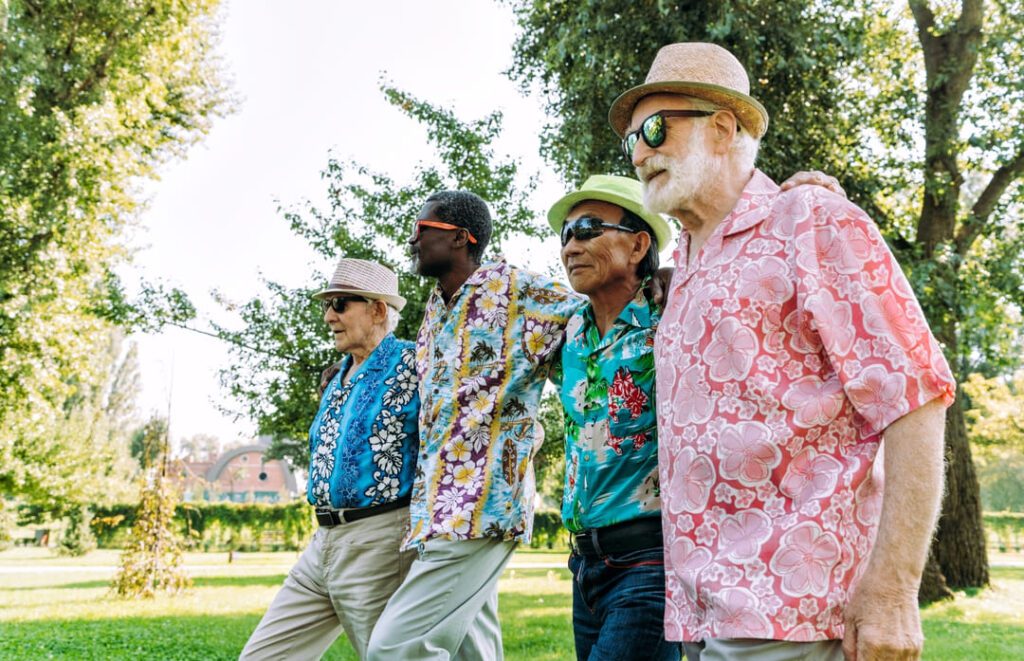Looking for Expert-Level VA Claim Answers?📱Call Us Now! 737-295-2226
Do you need a VA buddy letter example to help get you started?
A VA buddy letter can help provide credibility to a veteran’s VA claim, ensuring they get the benefits and compensation they deserve.
However, it can be more complex than it seems. But don’t worry; we’ve covered what you need to know to deliver a stellar VA buddy letter.
Let’s begin!
Summary of Key Points
-
Purpose of VA Buddy Letters: VA buddy letters provide crucial firsthand evidence to support a veteran’s VA claim by detailing their condition and its impact.
-
Structure of a Buddy Letter: Use VA Form 21-10210 to establish the writer’s relationship with the veteran, describe witnessed events or conditions, outline current symptoms, and certify the statement’s truthfulness.
-
Writing Tips: Keep buddy letters concise and factual, emphasizing the relationship with the veteran and avoiding embellishments to ensure clarity and credibility.
You DESERVE a HIGHER VA rating.
Take advantage of a VA Claim Discovery Call with an experienced Team Member. Learn what you’ve been missing so you can FINALLY get the disability rating and compensation you’ve earned for your service.
Table of Contents

VA Buddy Statement Form
You’ll use VA form 21-10210 when writing a buddy letter. The form asks for basic details like the veteran’s name, mailing address, phone number, and email address.
In addition, VA form 21-10210 requires the claimant’s identification information, with a blank section for their statement.
Note: Everyone who writes a VA buddy letter on a veteran’s behalf must submit their own VA form 21-10210.
VA Buddy Letter Example
How to write a buddy letter in four parts: This quick, four-part template can be valuable for witnesses when crafting a VA buddy letter.
Part 1: How Do You Know the Veteran
In part 1, you need to explain how you know the veteran.
“My name is John Doe, and I’m the husband of veteran [INSERT VETERAN’S NAME].
I’m writing this statement for veteran [INSERT VETERAN’S NAME].
I have known [VETERAN’s NAME] since 1999 because we were high school sweethearts.
Over the past 25 years, we have interacted daily.”
Part 2: What You Witnessed or Are Witnessing
In part 2, you must explain in detail what you witnessed or are witnessing about the event, incident, or condition.
-
Pro Tip: You do not need to explain every detail. Be brief but thorough.
“When I first met [VETERAN’S NAME], before she entered active-duty military service, she was happy, fun-loving, and had no mental health issues. All of that changed in July 2004, when she was raped by another service member while TDY to Lackland Air Force Base, San Antonio, Texas.
It became very evident to me that she suffered from severe PTSD, depression, and anxiety. I encouraged her to get help and seek treatment many times over the years. Still, she feared retaliation and reprisal because she was an officer and worked with senior military leaders.”
Part 3: The veteran’s current symptoms
In part 3, you need to explain the current symptoms of the disability.
“Throughout our marriage, I witnessed [VETERAN’S NAME] suffer from severe depression, anxiety, insomnia, nightmares, relationship problems, trust issues, anger issues, panic attacks 3-5x per week, memory problems, and sexual dysfunction, among many others.
The rape mentioned above by a fellow service member has affected her so much that it is my belief she cannot have a normal relationship with anyone anymore, which was a huge reason we’ve had numerous marital challenges over the years. I am 100% certain that her PTSD, depression, and anxiety are due to the rape.”
Part 4: Sign and Date
In part 4, you must sign and date the form and certify that your statement is true “to the best of your knowledge and belief.”
Signed, John Doe, January 23, 2024
“I CERTIFY THAT the statements on this form are true and correct to the best of my knowledge and belief.”
Do I Even Need a Buddy Letter?
Not sure if you even need a buddy letter for your claim?
See our guide, Do I Need a Buddy Letter? 3 Keys to Consider.

4 Tips for Writing a VA Buddy Letter
VA buddy letters are best when they are straightforward and communicate how a veteran’s condition caused by their military service has affected their life.
Here are four tips to help you write a strong VA buddy letter.
- Establish Your Relationship with the Veteran
Ensure you establish a relationship between the veteran and the person writing the buddy letter. The veteran’s legal name should be used, avoiding nicknames.
In addition, include information about life before and after the in-service event, highlighting its impact on daily life. If you knew the veteran before the event, describe how it changed how they are as a person.
- Focus on Concise Details
VA buddy letters should include concise details while avoiding fluff. VA raters want to hear the exact information needed to support a veteran’s disability claim.
You want to provide extensive details about the events surrounding the cause of the veteran’s condition while avoiding unnecessary information that may diminish the severity of the situation.
- Avoid Doubt
Forgetting things is natural, but don’t stretch the truth, as this can weaken your claim and lead to denial. Stick to the truth and don’t exaggerate the situation.
- Fill in All the Blanks
Remember to thoroughly check your VA buddy statement form, ensuring you didn’t miss anything or forget to sign and date. When you’re finished, give your VA buddy letter to the veteran so they can include it with their VA claim.
Who Can Write a VA Buddy Letter?
The most credible people to write a VA buddy letter are those with first-hand knowledge of a veteran’s condition.
For example, if you are filing a VA claim for sleep apnea, your spouse likely has the best knowledge of the extent of your condition.
Common sources of VA buddy letters include:
- Spouse
- Adult children
- Family members
- Pastor
- Close friends
- Co-workers
- Fellow service members
- Mentor or teacher
Note: Individuals who write VA buddy letters must be 18 years or older.

NEED MORE ASSISTANCE?
Most veterans are underrated for their disabilities and, therefore, not getting their due compensation. At VA Claims Insider, we help you understand and take control of the claims process so you can get the rating and compensation you’re owed by law.
Our process takes the guesswork out of filing a VA disability claim and supports you every step of the way in building a fully-developed claim (FDC)—so you can increase your rating FAST!
If you’ve filed your VA disability claim and have been denied or have received a low rating—or you’re unsure how to get started—reach out to us! Take advantage of a FREE VA Claim Discovery Call. Learn what you’ve been missing—so you can FINALLY get the disability rating and compensation YOU DESERVE!
About the Author

Brian Reese
Brian Reese is a world-renowned VA disability benefits expert and the #1 bestselling author of VA Claim Secrets and You Deserve It. Motivated by his own frustration with the VA claim process, Brian founded VA Claims Insider to help disabled veterans secure their VA disability compensation faster, regardless of their past struggles with the VA. Since 2013, he has positively impacted the lives of over 10 million military, veterans, and their families.
A former active-duty Air Force officer, Brian has extensive experience leading diverse teams in challenging international environments, including a combat tour in Afghanistan in 2011 supporting Operation ENDURING FREEDOM.
Brian is a Distinguished Graduate of Management from the United States Air Force Academy and earned his MBA from Oklahoma State University’s Spears School of Business, where he was a National Honor Scholar, ranking in the top 1% of his class.




